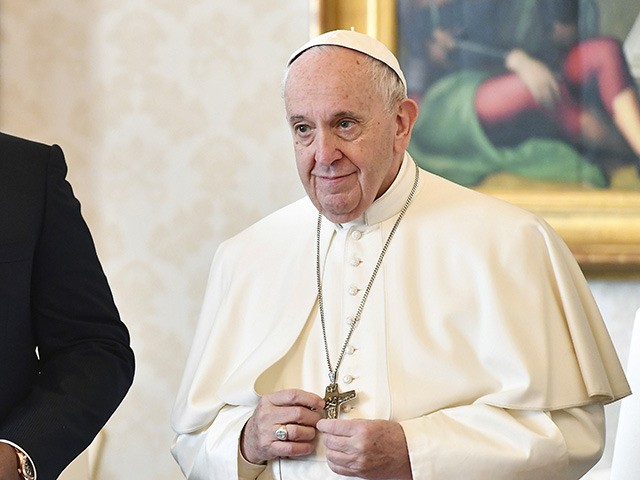ROME, Italy — Pope Francis presented his vision of building back better in a video message Thursday to the World of Work Summit in Geneva.
“In the rush to return to greater economic activity at the end of the COVID-19 threat, let’s avoid past fixations on profit, isolationism and nationalism, blind consumerism, and denial of clear evidence pointing to discrimination against our ‘disposable’ brothers and sisters in our society,” the pontiff urged.
“On the contrary, let us look for solutions that help us build a new future of work based on decent and dignified working conditions, that comes from collective bargaining, and that promote the common good,” he continued in his Spanish-language address.
“In that sense, work is truly and essentially human,” he added. “This is what it is all about: be human.”
Thursday’s address builds on a series of similar pronouncements with a similar message, in which the pope proposes rebuilding the international economy from the ground up in a post-coronavirus world.
Earlier this week, Francis said that a serious and honest analysis of the past “includes the recognition of the systemic deficiencies, the mistakes made, and the lack of responsibility towards the Creator, our neighbor, and creation.”
It is essential “to develop an idea of recovery that aims not only to rebuild what existed but to correct what no longer worked before the arrival of the coronavirus and that has contributed to aggravating the crisis,” he said.
In an op-ed for the New York Times last November, the pope wrote that this “is a moment to dream big, to rethink our priorities — what we value, what we want, what we seek — and to commit to act in our daily life on what we have dreamed of.”
“God asks us to dare to create something new,” he wrote. “We cannot return to the false securities of the political and economic systems we had before the crisis. We need economies that give to all access to the fruits of creation, to the basic needs of life: to land, lodging and labor.”
“We need to slow down, take stock, and design better ways of living together on this earth,” he proposed.
The World Economic Forum (WEF) at Davos interpreted the pope’s words as an endorsement of its “Great Reset” program and highlighted the similarities between their visions.
In an article titled “Here’s the pope’s prescription for resetting the global economy in response to COVID-19,” the WEF said that Francis had “put his stamp on efforts to shape what’s been termed a Great Reset of the global economy in response to the devastation of COVID-19.”
“Pope Francis has issued a scathing indictment of neoliberalism,” the WEF declared, “a philosophy espousing austerity, privatization, deregulation, unbridled markets, and relatively weak labour laws [sic].”
Furthermore, the pope “blames the ‘dogma’ of neoliberal economics for making us more vulnerable to COVID-19,” it said, while calling for “greater multilateral cooperation and a focus on human dignity.”
“Neoliberalism’s free-market orthodoxy has been blamed for making health care systems and livelihoods especially vulnerable to the pandemic, and has drawn a clearer line under the need for active government intervention,” the article insisted.

COMMENTS
Please let us know if you're having issues with commenting.